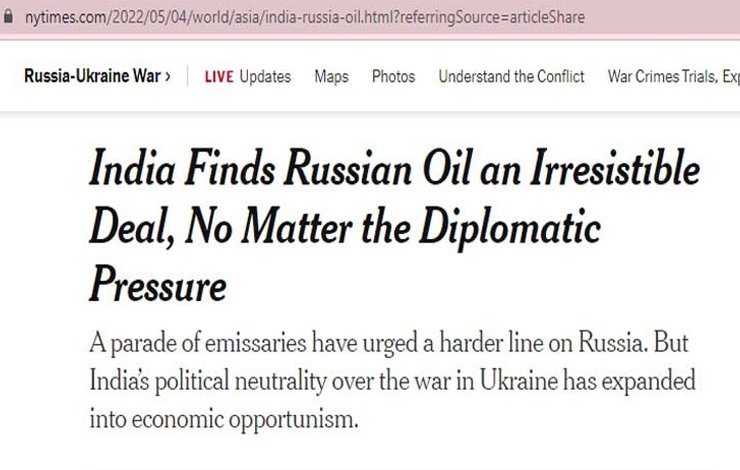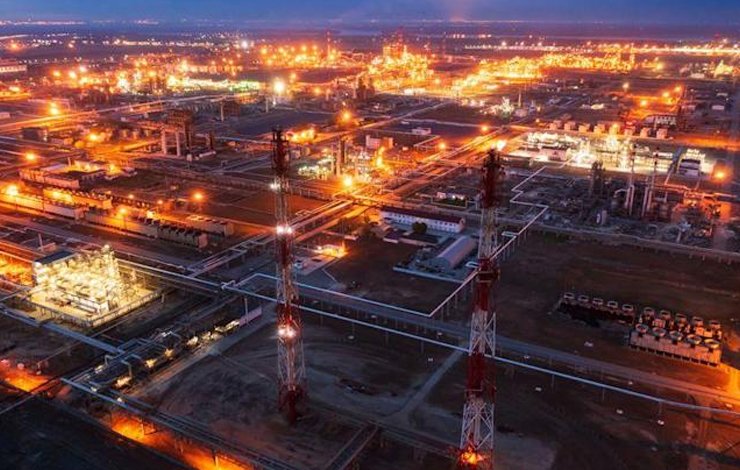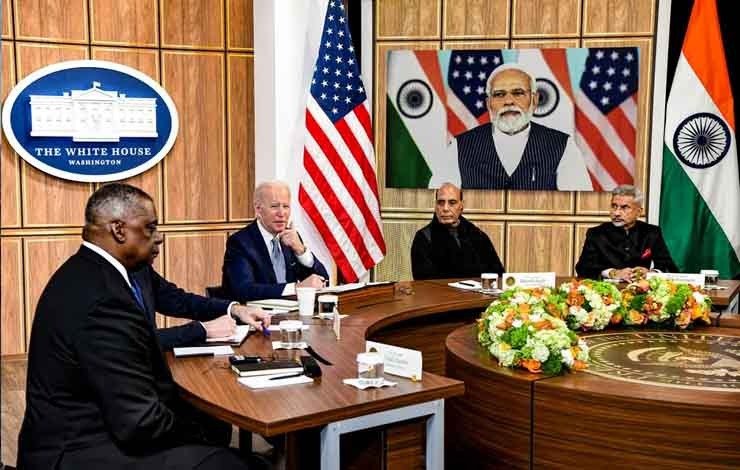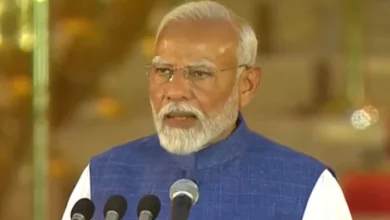India rejects US, Europe pressure over Russian oil deal
On the other hand, Pakistan is reluctant to purchase Russian oil due to the fear of US sanctions which was recommended by the former prime minister Imran Khan.

NEW DELHI: India has rejected the pressure of US and European nations to refrain from buying Russia oil as the purchases of Russia crude have soared from 300,000 barrels a days in March to 700,000 barrels a day in April.
India’s purchases of Russian crude have soared because the battle’s begin, rising from nothing in December and January to about 300,000 barrels a day in March and 700,000 a day in April. The crude now accounts for practically 17 p.c of Indian imports, up from lower than 1 p.c earlier than the invasion. Final 12 months, India imported about 33,000 barrels a day on common from Russia, according to the New York Times (NYT) report.
Pakistan still reluctant to show progress
On the other hand, Pakistan is reluctant to purchase Russian oil due to the fear of US sanctions which was recommended by the former prime minister Imran Khan.
In February, then prime minister Imran Khan had announced that the country will import about 2 million tons of wheat from Russia and buy natural gas as well under bilateral agreements the two sides signed in February during his official trip to Moscow.
On Monday, the Pakistani prime minister defended his trip and responded to critics in a televised speech to the nation, saying Pakistan’s economic interests required him to do so.
How PTI govt provides relief in fuel, energy prices despite global inflation?
Critics, however, are skeptical about Moscow-Islamabad economic collaboration, citing tougher international sanctions slapped on Russia after its invasion of Ukraine, according to VOAnews.
Pakistani officials and ex-PM Khan himself maintained that the Moscow visit was planned long before the Ukraine crisis erupted and was aimed solely at reviewing bilateral trade relations, including energy cooperation.
In March 2022, the former PTI government gave a Rs38 billion subsidy on fuel, whereas, it planned to purchase oil from Russia at 30 per cent less price as compared to the global market. It may be noted here that India is already purchasing oil from Russia at a lower price as it bore the pressure of Western countries and refused to stop the oil purchases.
Former prime minister Imran Khan’s decision for oil purchases from Russia was subjugated and a regime change plan was succeeded in the country by the then opposition. The present government did not pursue the former PTI government’s policy nor made any progress on the deal.
The PTI leader and former energy minister Hammad Azhar presented a solution to reduce the burden on the national treasury, saying that the PTI government had initiated talks with Russia for low-cost oil stocks. He said that Pakistan would not give any fuel subsidy if it purchases oil from Russia at 30% less price.
Azhar also asked the finance minister to elaborate on the PML-N government’s plan for stabilising the rupee against the US dollar. He added that the federal government should decide on increasing the fuel price if it is needed instead of creating confusion. Azhar reminded that the former PM vowed not to increase the fuel price till June.
Fuel prices unchanged: PML-N govt proves Imran Khan’s decision correct
The former energy minister criticised that the present government created an artificial power and diesel crisis in the country and its economic policies are directionless, whereas, the inflation has risen above 13%.
He also clarified that the PTI government did not give any authority to the IMF to fix the prices of petroleum products. He suggested the PML-N government immediately go to the fresh elections if it fails to handle the issues.
India’s stance
“If oil is on the market and at a reduction, why shouldn’t I purchase it? I would like it for my individuals,” Nirmala Sitharaman, India’s finance minister, stated final month.
The reshuffling of Russia’s oil exports turned evident days after President Vladimir V. Putin launched his assault on Ukraine in late February, as tanker visitors that used to go from Russian terminals on the Black Sea to Northern Europe bent as an alternative towards India.
That visitors may get busier after the European Union introduced on Wednesday that it hoped to section in a ban on Russian oil within the coming months, a transfer that got here days after Russia reduce off fuel to Poland and Bulgaria, growing the potential for an vitality warfare.
The India-bound tankers are heading into Jamnagar, within the western state of Gujarat, the place Reliance Industries has the world’s largest refinery complicated, and into Vadinar, additionally in Gujarat, the situation of a refinery owned by Nayara Vitality, an Indian affiliate of Rosneft, the Russian state firm.
“Northwest Europe demand was obliterated,” stated Viktor Katona, an analyst at Kpler, an agency that tracks vitality delivery. “That has basically been taken over by India.”
Whereas Europe could also be transferring away from crude purchases from Russia, it’s keen to purchase the identical oil after it’s refined in India — one of many conundrums in crimping Moscow’s vitality revenues.
India’s exports of diesel and different refined merchandise to Europe, the place they’re in brief provide, reached 219,000 barrels a day, a brand new excessive, in March, earlier than falling again in April as demand in India surged.
Concurrently, India’s state-owned oil corporations are buying tens of millions of barrels of Russian crude for the home market, which can have helped Prime Minister Narendra Modi’s authorities keep away from a surge in gas costs after it lifted a freeze in March.
To this point, the USA has chosen to not impose harder sanctions which will power international locations like India to cease shopping for Russian crude. That warning might mirror worries within the Biden administration that such a transfer may additional increase pump costs for people.
“The White Home appears averse to taking motion to shut the Indian shelter for homeless Russian barrels,” stated Helima Croft, head of commodities at RBC Capital Markets, an funding financial institution, in a be aware to purchasers.
It’s not laborious to grasp why Russian oil is enticing to consumers in India and elsewhere, regardless of the dangers of opprobrium over Ukraine. They’ll receive substantial reductions of $30 a barrel or extra, an excellent deal when Brent crude, the worldwide benchmark, is promoting at about $105 a barrel.
With European international locations, as of now, nonetheless shopping for Moscow’s oil, high Indian authorities officers have stated it’s hypocritical of them to ask India to curtail its commerce with Russia. They usually have argued that India, a growing nation, doesn’t have the posh to snub discounted vitality.
India’s commerce ties with Russia date to the South Asian nation’s early days as an unbiased nation, when it lacked a credit score historical past and a well-established forex. Russia was amongst only some merchants prepared to purchase items from India and settle for Indian rupees as cost. With India taking a place of nonalignment via the Chilly Conflict, bilateral commerce continued, permitting India to construct its protection arsenal largely with Russian arms.
Russia has additionally equipped India with political help on the United Nations. India has returned the favor by abstaining from U.N. resolutions to sentence the Russian invasion.





